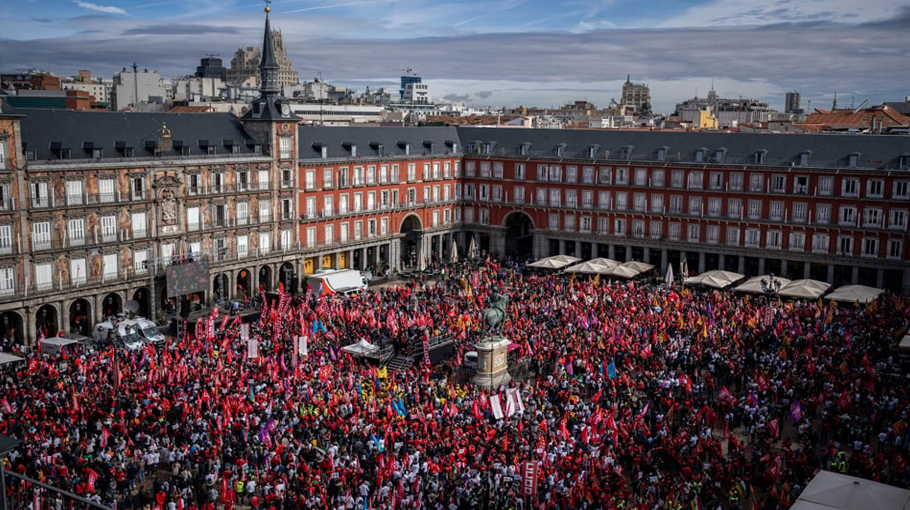Thousands rally in Madrid for pay hikes as costs soar

Thousands of people took to the streets of Spain's capital on Thursday to demand higher pay to cope with soaring inflation and energy costs.
Protestors waved red union flags and banged drums as they made their way to the Spanish capital's landmark Plaza Mayor square behind a large banner that read: "Salary or Conflict".
Police estimate some 25,000 people took part in the demonstration, which was called by Spain's two main unions, the CCOO and UGT.
"Either there is a rise in salaries or work conflicts will increase exponentially in our country over the next year," CCOO secretary general Unai Sordo told reporters at the protest.
Like other countries, Spain has been struggling with soaring inflation as a result of the fallout from the war in Ukraine and the reopening of the economy after pandemic-related lockdowns.
Inflation in Spain peaked this summer at 10.8 percent in July, its highest level in 38 years, before moderately slowing to 7.3 percent in October -- still well above normal levels. "Salaries are still super low" while the cost of "essentials" has soared, Maria Luisa Ortega, a 57-year-old service sector worker, told AFP at the protest.
She said salary raises must match the rise in inflation.
The protest comes as Spain's leftist government is negotiating with unions and business groups a new increase in the minimum wage, which is currently set at 1,000 euros ($987) a month.
Far-left party Podemos, the junior partner in Socialist Prime Minister Pedro Sanchez's coalition government, is calling for a 10 percent increase in the minimum wage.
But Spain's main business association CEOE has ruled out pay hikes in line with inflation, arguing they will hurt firms, especially smaller ones, although it is open to discuss more modest increases.
The government has vowed to lift the minimum wage to 60 percent of Spain's average salary by the end of its term in office in December 2023, bringing it in line with the level of its European neighbours.





